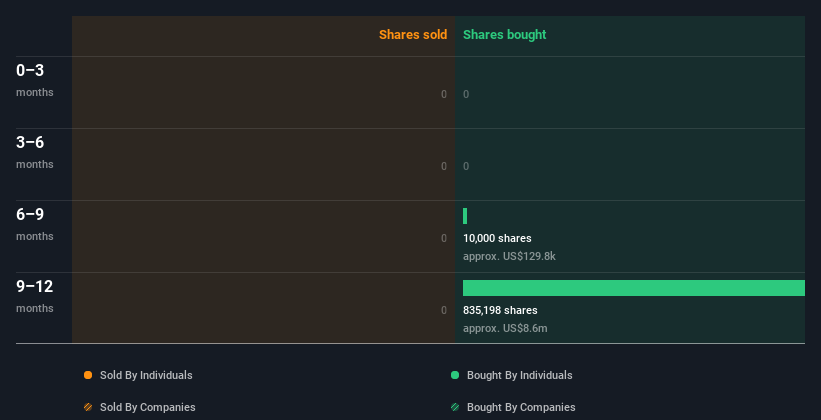Bullish insiders bet US$8.1m on SelectQuote, Inc. (NYSE:SLQT)
In the last year, multiple insiders have substantially increased their holdings of SelectQuote, Inc. (NYSE:SLQT) stock, indicating that insiders' optimism about the company's prospects has increased.
While we would never suggest that investors should base their decisions solely on what the directors of a company have been doing, we do think it is perfectly logical to keep tabs on what insiders are doing.
Check out our latest analysis for SelectQuote
The Last 12 Months Of Insider Transactions At SelectQuote
Over the last year, we can see that the biggest insider purchase was by Chief Operating Officer William Grant for US$2.0m worth of shares, at about US$8.85 per share. That means that even when the share price was higher than US$2.89 (the recent price), an insider wanted to purchase shares. It's very possible they regret the purchase, but it's more likely they are bullish about the company. To us, it's very important to consider the price insiders pay for shares. Generally speaking, it catches our eye when insiders have purchased shares at above current prices, as it suggests they believed the shares were worth buying, even at a higher price.
In the last twelve months SelectQuote insiders were buying shares, but not selling. The chart below shows insider transactions (by companies and individuals) over the last year. If you click on the chart, you can see all the individual transactions, including the share price, individual, and the date!
There are always plenty of stocks that insiders are buying. So if that suits your style you could check each stock one by one or you could take a look at this free list of companies. (Hint: insiders have been buying them).
Insider Ownership of SelectQuote
Looking at the total insider shareholdings in a company can help to inform your view of whether they are well aligned with common shareholders. We usually like to see fairly high levels of insider ownership. Insiders own 14% of SelectQuote shares, worth about US$66m. We've certainly seen higher levels of insider ownership elsewhere, but these holdings are enough to suggest alignment between insiders and the other shareholders.
What Might The Insider Transactions At SelectQuote Tell Us?
It doesn't really mean much that no insider has traded SelectQuote shares in the last quarter. However, our analysis of transactions over the last year is heartening. Overall we don't see anything to make us think SelectQuote insiders are doubting the company, and they do own shares. So these insider transactions can help us build a thesis about the stock, but it's also worthwhile knowing the risks facing this company. Our analysis shows 2 warning signs for SelectQuote (1 is a bit unpleasant!) and we strongly recommend you look at them before investing.
If you would prefer to check out another company -- one with potentially superior financials -- then do not miss this free list of interesting companies, that have HIGH return on equity and low debt.
For the purposes of this article, insiders are those individuals who report their transactions to the relevant regulatory body. We currently account for open market transactions and private dispositions, but not derivative transactions.
Have feedback on this article? Concerned about the content? Get in touch with us directly. Alternatively, email editorial-team (at) simplywallst.com.
This article by Simply Wall St is general in nature. We provide commentary based on historical data and analyst forecasts only using an unbiased methodology and our articles are not intended to be financial advice. It does not constitute a recommendation to buy or sell any stock, and does not take account of your objectives, or your financial situation. We aim to bring you long-term focused analysis driven by fundamental data. Note that our analysis may not factor in the latest price-sensitive company announcements or qualitative material. Simply Wall St has no position in any stocks mentioned.

 Yahoo Finance
Yahoo Finance 
